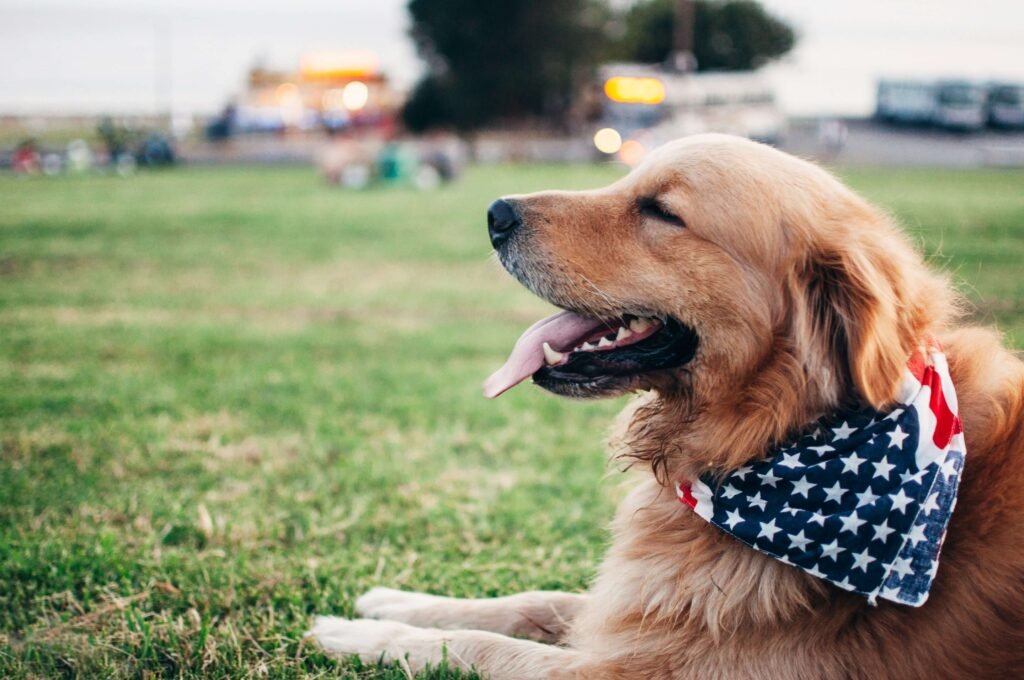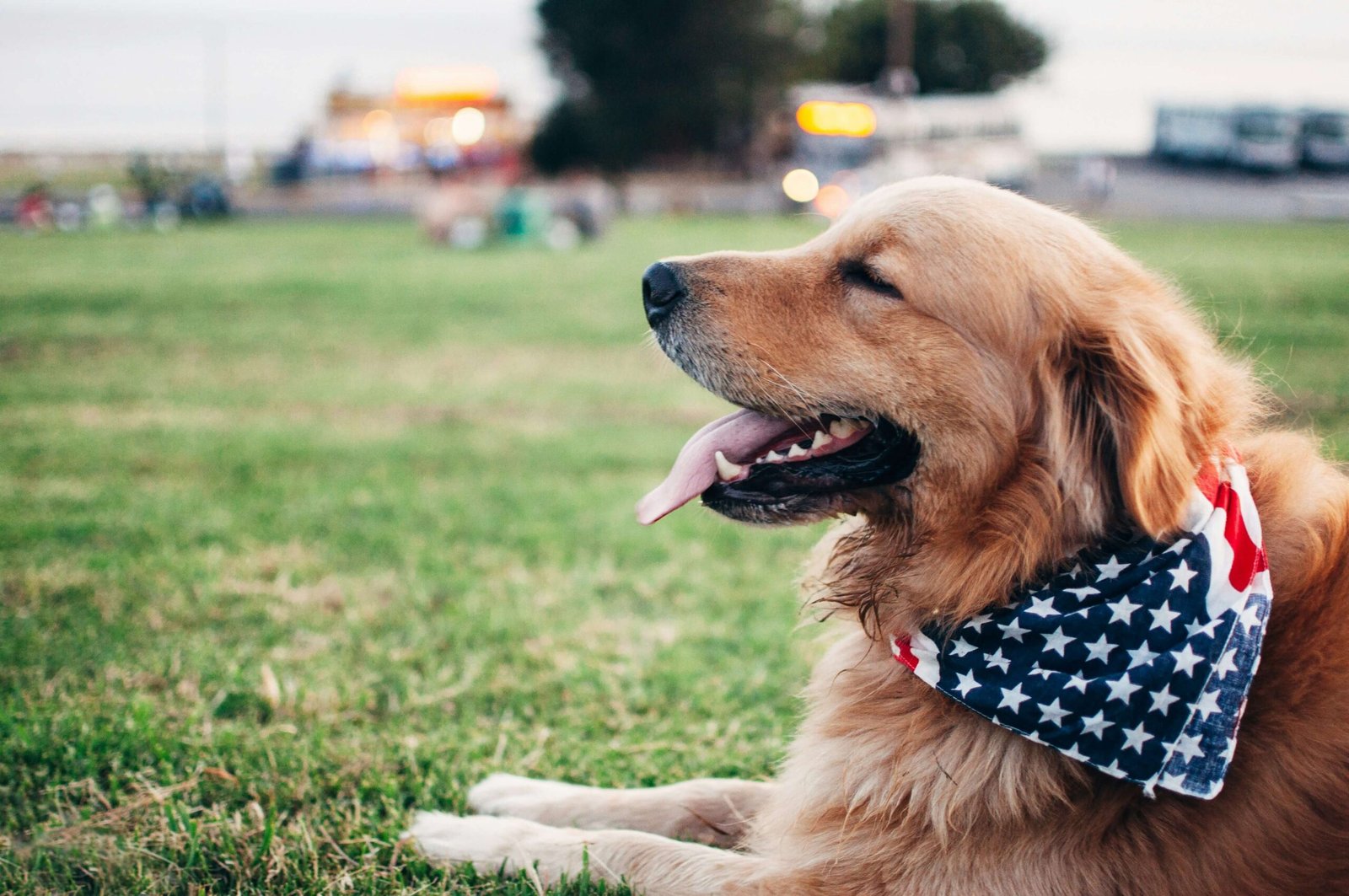Why Is My Dog Breathing Heavy? Understanding the Causes and Solutions
Heavy breathing in dogs can be alarming for pet owners, but it’s not always a cause for concern. Dogs use panting as a natural way to regulate their body temperature, especially after exercise or during hot weather. However, excessive or unusual heavy breathing may indicate an underlying health issue that requires attention. As a responsible dog owner, it’s important to recognize the difference between normal panting and abnormal respiratory behavior. In this blog post, we’ll explore the common causes of heavy breathing in dogs, how to identify potential problems, and what steps you can take to ensure your furry friend stays healthy and comfortable.
Common Causes of Heavy Breathing in Dogs
Understanding why your dog might be breathing heavily is the first step toward addressing the issue. Here are some common reasons behind this behavior, ranging from harmless to serious.
Heat Regulation:
Dogs don’t sweat like humans; instead, they rely on panting to cool down. Heavy breathing after physical activity or in warm weather is often normal.Stress or Anxiety:
Dogs experiencing fear, excitement, or anxiety may breathe heavily as a response to emotional distress.Exercise or Physical Activity:
Vigorous play or exercise can lead to temporary heavy breathing as your dog recovers and regulates their oxygen levels.Brachycephalic Breeds:
Flat-faced breeds like Bulldogs and Pugs are prone to respiratory issues due to their anatomy, making heavy breathing more common.Underlying Health Conditions:
Conditions such as heart disease, respiratory infections, or allergies can cause persistent or labored breathing.
By identifying the root cause of your dog’s heavy breathing, you can determine whether it’s a natural response or a sign of something more serious.

Signs That Heavy Breathing May Be a Problem
Not all heavy breathing is normal, and certain symptoms can signal that your dog needs veterinary attention. Look out for these warning signs to ensure your pup’s well-being.
Excessive Panting at Rest:
If your dog is panting heavily while lying down or resting, it could indicate discomfort or pain.Labored Breathing Sounds:
Wheezing, coughing, or raspy breaths may point to respiratory or cardiovascular issues.Blue Gums or Tongue:
A bluish tint to your dog’s gums or tongue suggests oxygen deprivation and requires immediate care.Lethargy or Weakness:
Heavy breathing accompanied by fatigue or unresponsiveness is a red flag for potential health problems.Swelling or Injury:
Visible swelling around the throat or chest area can restrict breathing and should be evaluated promptly.
Recognizing these signs early can help you address any underlying issues before they escalate into emergencies.
Check this guide 👉Why Is My Dog Breathing Fast in His Sleep? Best 7 Tips!
Check this guide 👉Understanding Dog Snort Breathing: Best 7 Health Tips!
Check this guide 👉Dog is Breathing Weird: Best 7 Expert Tips!
Normal Reasons for Heavy Breathing | Potential Health Concerns |
|---|---|
Heat regulation through panting | Heart disease or congestive heart failure |
Post-exercise recovery | Respiratory infections or pneumonia |
Emotional responses (stress, anxiety) | Allergies or asthma-like conditions |
Brachycephalic breed characteristics | Tracheal collapse or obstruction |
Excitement or overstimulation | Poisoning or toxin exposure |
How to Help Your Dog Breathe Easier
If your dog is breathing heavily, there are several steps you can take to provide relief and ensure their comfort. These tips can help manage mild cases while guiding you on when to seek professional help.
Cool Them Down:
Move your dog to a shaded or air-conditioned area and offer fresh water to help them cool off if overheating is the cause.Reduce Stress:
Create a calm environment by removing triggers of anxiety, such as loud noises or unfamiliar surroundings.Monitor Exercise Levels:
Avoid overexertion, especially in hot or humid conditions, to prevent unnecessary strain on your dog’s respiratory system.Check for Obstructions:
Inspect your dog’s mouth and throat for foreign objects or blockages that could impair breathing.Consult a Veterinarian:
If heavy breathing persists or is accompanied by other symptoms, schedule a vet visit to rule out serious conditions.
Taking these proactive measures ensures your dog’s breathing remains healthy and balanced.
Preventive Measures to Minimize Heavy Breathing
Prevention is key to keeping your dog’s respiratory system healthy and reducing the likelihood of heavy breathing episodes. Here are some strategies to incorporate into your routine.
Maintain a Healthy Weight:
Obesity can strain your dog’s heart and lungs, increasing the risk of breathing difficulties.Provide Proper Ventilation:
Ensure your home has good airflow, especially during warmer months, to keep your dog comfortable.Avoid Extreme Temperatures:
Limit outdoor activities during peak heat or cold to protect your dog from environmental stressors.Regular Vet Check-Ups:
Routine examinations can detect early signs of respiratory or cardiovascular issues before they become severe.Use Calming Techniques:
Train your dog to remain calm in stressful situations using positive reinforcement and desensitization methods.
Implementing these preventive measures helps safeguard your dog’s respiratory health and overall well-being.
Breeds Prone to Heavy Breathing
Certain dog breeds are more susceptible to heavy breathing due to their physical traits or predispositions. Knowing which breeds are at higher risk can help you anticipate and address potential issues.
Brachycephalic Breeds:
Bulldogs, Pugs, and Shih Tzus have shortened airways, making breathing more challenging.Large Breeds:
Great Danes and Irish Wolfhounds are prone to heart conditions that can affect breathing.Active Working Breeds:
Border Collies and German Shepherds may breathe heavily after intense physical activity.Senior Dogs:
Aging dogs often experience reduced lung capacity and increased respiratory effort.Overweight Dogs:
Excess weight puts pressure on the chest and lungs, leading to labored breathing.
Understanding breed-specific risks allows you to tailor care and prevention strategies for your dog.
Environmental Factors Affecting Dog Breathing
External factors can significantly impact your dog’s respiratory health. Being mindful of these influences helps you create a safer environment for your pet.
High Humidity Levels:
Humid air makes it harder for dogs to cool themselves, increasing the likelihood of heavy breathing.Poor Air Quality:
Smoke, dust, or strong odors can irritate your dog’s respiratory system and trigger panting.Extreme Temperatures:
Both heatwaves and freezing temperatures place additional strain on your dog’s breathing.Confined Spaces:
Lack of ventilation in small areas can lead to discomfort and rapid breathing.Household Chemicals:
Cleaning products or aerosols can harm your dog’s lungs if inhaled frequently.
Minimizing exposure to harmful environmental factors supports your dog’s respiratory well-being.
First Aid Tips for Heavy Breathing Emergencies
In emergencies where your dog is struggling to breathe, quick action can make all the difference. These first aid tips can stabilize your pet until professional help arrives.
Stay Calm and Reassure Your Dog:
Dogs pick up on your emotions—remaining calm helps reduce their stress.Move to a Safe Area:
Relocate your dog to a quiet, well-ventilated space away from hazards.Cool Them Gradually:
Use damp towels or fans to lower body temperature without shocking their system.Check for Blockages:
Carefully inspect your dog’s mouth for obstructions, but avoid forcing anything further down their throat.Contact Emergency Services:
Call your vet or an animal hospital immediately for guidance and next steps.
Knowing how to respond in an emergency ensures your dog receives timely care and support.
Frequently Asked Questions About Heavy Breathing in Dogs
Is heavy breathing normal for dogs?
Yes, it’s normal in certain situations like exercise or heat exposure, but persistent heavy breathing should be checked by a vet.
Can stress cause my dog to breathe heavily?
Absolutely. Stressful situations can lead to rapid breathing as part of their natural response.
What should I do if my dog is panting excessively?
First, try to calm them down and cool them off. If the panting continues, consult a veterinarian.
Are brachycephalic breeds more prone to heavy breathing?
Yes, flat-faced breeds like pugs and bulldogs often struggle with breathing due to their anatomy.
How can I prevent heatstroke in my dog?
Keep them hydrated, avoid midday walks in hot weather, and never leave them in a parked car.
Ensuring Your Dog’s Respiratory Health
Heavy breathing in dogs can range from a harmless response to environmental factors to a symptom of a serious medical condition. By understanding the causes, recognizing warning signs, and taking preventive measures, you can ensure your dog stays happy and healthy. Always trust your instincts—if something seems off about your dog’s breathing, don’t hesitate to consult a veterinarian. With proper care and attention, you can give your loyal companion the best chance at a long, joyful life filled with easy, peaceful breaths.
Canned Pumpkin for Cat Diarrhea: Best 7 Expert Tips! Natural remedy to firm stools, soothe upset bellies, and support gut health safely.
Can a Cat Give You Scabies? Best 7 Expert Tips! Discover the truth about feline mites, human skin risks, and how to protect yourself—without panic.
Cat Flea vs Human Flea: Best 7 Expert Tips! Discover the truth about bites, species, and how to eliminate infestations for good.
Weird Cat Behaviors: Best 7 Expert Tips! Discover why cats do strange things—and how to understand, not punish, their instincts for a happier home.





